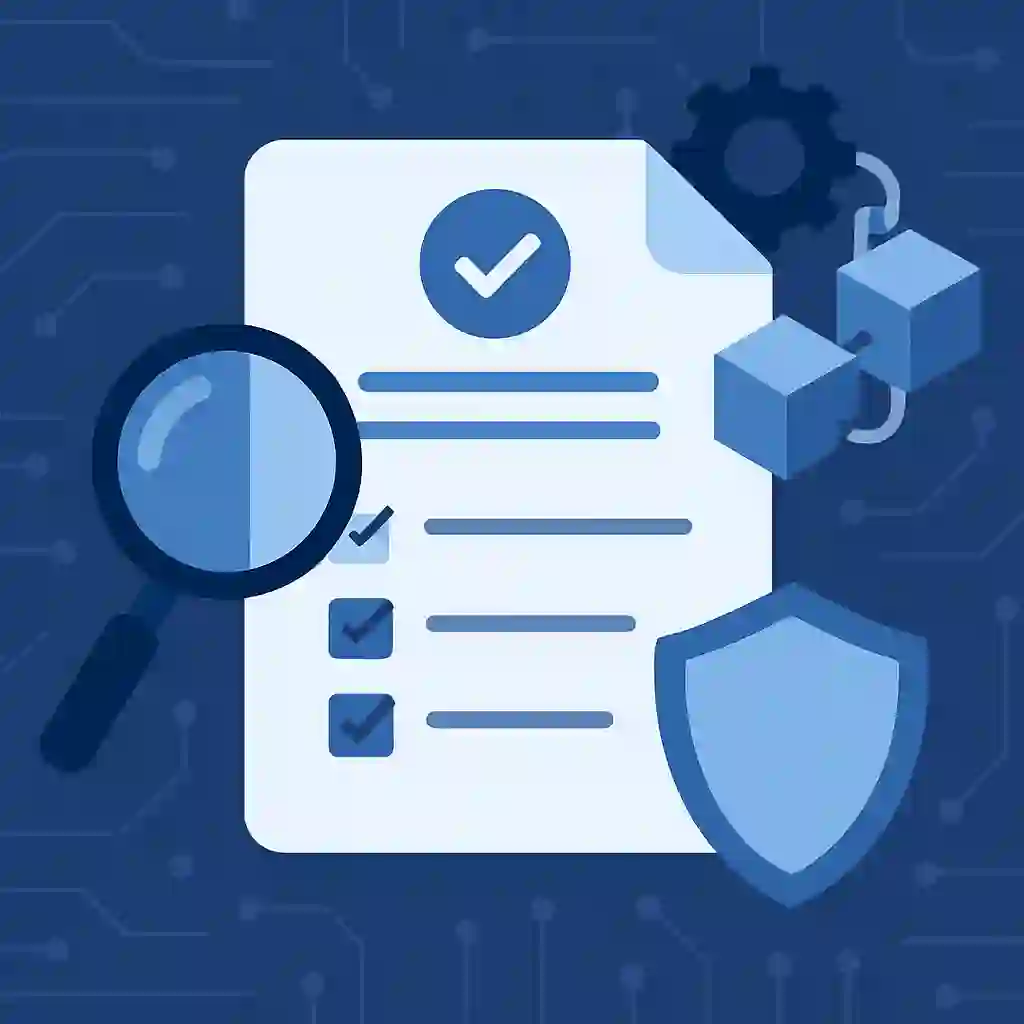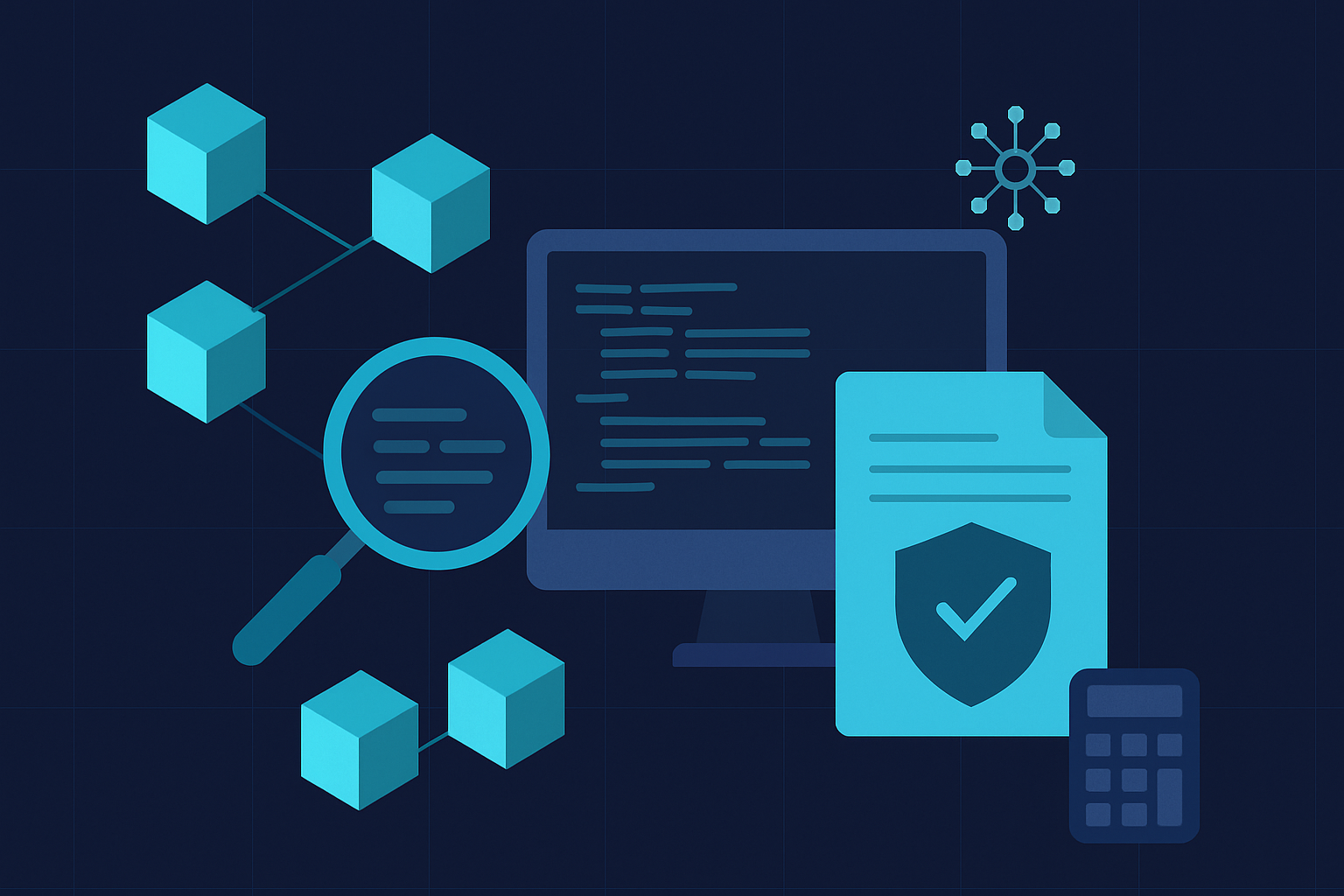The Ultimate Guide to Smart Contract Auditing in 2025

Strong 8k brings an ultra-HD IPTV experience to your living room and your pocket.
Smart contracts continue to be the backbone of decentralized applications, powering everything from DeFi protocols and DAOs to NFT marketplaces and decentralized gaming platforms. As the blockchain ecosystem matures in 2025, the emphasis on security, reliability, and transparency is more important than ever. At the heart of this emphasis lies smart contract auditing—a critical process that ensures code behaves exactly as intended, without leaving room for costly exploits or vulnerabilities. This comprehensive guide explores everything you need to know about smart contract auditing in 2025, from its importance and methodologies to best practices and real-world applications.
What Is Smart Contract Auditing?
Smart contract auditing is the process of systematically reviewing and analyzing the code of a smart contract to identify vulnerabilities, bugs, and inefficiencies. These audits are performed by specialized blockchain security experts or audit firms, who examine both the logic and the implementation of the contract. The primary goal is to ensure that the smart contract performs as expected under all possible scenarios, safeguarding user funds and preventing unintended behavior. In 2025, smart contract audits have become more standardized and rigorous, often forming a non-negotiable part of the development lifecycle for any serious blockchain project.
Why Smart Contract Auditing Matters More Than Ever
The cost of an undetected vulnerability in a smart contract can be catastrophic. From major DeFi protocol hacks to NFT platform exploits, the industry has witnessed billions of dollars in losses over the years due to flawed or unaudited code. As the blockchain space continues to attract mainstream users and institutional capital, trust has become a vital currency. Audited smart contracts offer a layer of assurance that projects are secure, credible, and professional. Beyond security, audits also enhance transparency, improve code quality, and boost user and investor confidence.
In 2025, with the rise of automated financial products, cross-chain bridges, and more complex dApps, the audit process has had to evolve in sophistication. Attack surfaces have expanded, and malicious actors have become more resourceful. Therefore, a smart contract audit today is not merely a box to check—it's a strategic investment in a project's long-term viability and reputation.
The Smart Contract Audit Lifecycle
The audit process typically begins once the initial development of the smart contract is complete. Developers submit their codebase—usually written in Solidity or Vyper—for review. The auditing team starts with a manual code review to understand the contract’s architecture, business logic, and potential edge cases. Automated tools may then be used to detect common vulnerabilities such as reentrancy, overflow, underflow, timestamp dependencies, and front-running risks.
Once the code is analyzed, the auditors simulate different conditions to observe how the contract behaves in various environments. Formal verification techniques are sometimes employed for mission-critical applications. After identifying potential issues, auditors produce a detailed report that highlights the vulnerabilities, categorizes them by severity, and provides recommendations for remediation. The developers are then expected to fix the issues and submit the code for a follow-up audit. Once all concerns are addressed, a final audit report is published, often accompanied by a public certification of the audit.
Key Vulnerabilities Auditors Look For
In 2025, the list of vulnerabilities has grown more nuanced as contract complexity increases. While traditional issues like reentrancy and integer overflows still exist, newer risks have emerged from advanced DeFi mechanisms, multi-signature wallet implementations, and cross-chain interactions. Auditors now pay close attention to business logic errors, improper access controls, gas optimization flaws, and misuse of external oracles.
Another area of concern is permission management. Many smart contracts involve owner roles or administrative privileges, which if misconfigured, can lead to centralized control or unauthorized fund withdrawals. Auditors rigorously test for these threats to ensure that access controls are secure and transparent. Furthermore, with the rise of upgradable smart contracts, proxy patterns have become common. Auditors must carefully analyze these implementations to avoid scenarios where contracts can be maliciously redirected or overwritten.
The Evolution of Audit Tools and Automation
The landscape of smart contract auditing tools has expanded significantly by 2025. While manual review remains irreplaceable for in-depth analysis, automation now plays a stronger supporting role. Tools like MythX, Slither, Manticore, and Echidna have matured, offering more precise detection capabilities and integration with CI/CD pipelines. These tools help auditors catch low-level bugs faster and allow developers to run pre-audit checks during the development phase.
AI-powered static analyzers have also emerged, capable of learning from past vulnerabilities and recommending best practices based on contextual code analysis. These tools do not replace human expertise but augment it by reducing the audit timeline and surfacing potential red flags early. Combined with comprehensive unit and integration testing frameworks, these advancements have made audits more efficient and accurate.
Choosing the Right Audit Partner
Not all audit firms are created equal. In 2025, the blockchain audit market is more competitive, with numerous firms offering varying levels of depth, speed, and specialization. When selecting an audit partner, project teams must evaluate their track record, audit methodology, familiarity with the specific blockchain ecosystem, and the clarity of their reporting.
Reputable audit firms often publish their past reports and maintain transparency around their processes. It's important to engage with auditors early in the development process to get feedback on the contract architecture, especially for complex or novel applications. The best audits are collaborative efforts, where the auditors and developers work closely to iterate and refine the code until it meets the highest standards of safety and efficiency.
Smart Contract Auditing for Different Blockchain Platforms
While Ethereum remains the dominant platform for smart contract deployment, 2025 has seen considerable growth in other ecosystems such as Solana, Binance Smart Chain, Avalanche, and Layer 2 solutions like Arbitrum and Optimism. Each of these platforms has its own development languages, standards, and security models. Consequently, smart contract audits need to be tailored to the technical and operational nuances of each blockchain.
Auditors must be well-versed in the specific environment in which the contract is deployed. For instance, Solana programs written in Rust require different audit techniques compared to Ethereum’s Solidity contracts. Similarly, Layer 2 platforms that use rollups or zero-knowledge proofs introduce unique considerations related to data availability and proof verification. A comprehensive audit in 2025 demands cross-platform fluency and awareness of emerging patterns across the blockchain landscape.
Post-Audit Best Practices and Ongoing Monitoring
A successful audit does not guarantee lifetime immunity from bugs or exploits. Smart contracts are immutable by nature, and even a minor overlooked issue can become a critical vulnerability once deployed. Therefore, post-audit practices are essential to maintaining ongoing contract security. This includes conducting multiple audits for major updates, implementing bug bounty programs, and deploying time-locked functions to reduce risk.
Many projects now integrate real-time monitoring tools to observe contract behavior, transaction anomalies, and gas usage trends. These tools can alert teams to suspicious activities or unexpected usage patterns, enabling faster response times. Furthermore, community engagement is encouraged, where open-sourced smart contracts are subject to continuous peer review by independent developers and security researchers.
Real-World Examples and Industry Standards
Several high-profile projects in 2025 have demonstrated the importance of smart contract auditing. Major DeFi protocols now publish multiple audit reports, undergo formal verification, and maintain active bounty programs. NFT marketplaces and DAOs often delay product launches until they’ve received full audit clearance. These industry standards are shaping user expectations and creating a more security-conscious ecosystem.
Organizations like the Ethereum Foundation, OpenZeppelin, and Certik continue to release open standards and frameworks that help teams align with best practices. Audit certifications are now often required for token listings on major exchanges or for integrating with lending and liquidity protocols. The growing demand for security has also led to the rise of decentralized audit DAOs that coordinate independent reviews from multiple experts.
The Future of Smart Contract Auditing
Looking forward, smart contract auditing is expected to become even more embedded in the development lifecycle. Integrated development environments (IDEs) may soon offer built-in audit tools, while AI systems evolve to simulate complex attack scenarios in seconds. Cross-chain audit standards are also likely to emerge as interoperability increases.
In addition, regulatory bodies are beginning to pay attention to the security of smart contracts, particularly in sectors like DeFi and tokenized assets. This could lead to the formalization of audit requirements as part of compliance frameworks. While this poses new challenges, it also reinforces the critical role of auditing in legitimizing and securing the blockchain ecosystem.
Final Thoughts
In 2025, smart contract auditing is not an optional enhancement—it is a foundational requirement for any blockchain project aiming to build trust, deliver value, and withstand the scrutiny of users, investors, and regulators. As smart contracts become more complex and influential, the need for rigorous, multi-layered security practices only grows. Investing in a high-quality audit is not just a defensive move—it’s a strategic step toward long-term success in the decentralized economy.
Whether you're a startup launching a new DeFi protocol, an enterprise tokenizing assets, or a developer building on a Layer 2 solution, smart contract auditing should be at the core of your strategy. By prioritizing security from the start, you can innovate with confidence and contribute to a safer, more resilient blockchain future.
Note: IndiBlogHub features both user-submitted and editorial content. We do not verify third-party contributions. Read our Disclaimer and Privacy Policyfor details.







